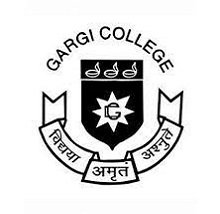Bachelor of Business Administration in Financial Investment Analysis [BBA (FIA)]
3 Years
BBA (FIA) – Gargi College
Duration:
-
3 years (6 semesters)
Course Structure:
The BBA (FIA) program is designed to provide a comprehensive understanding of business administration while focusing on financial markets and investment analysis. The course structure typically includes:
-
Core Courses: These are the foundation subjects that provide knowledge in business administration, finance, economics, and accounting.
-
Principles of Management
-
Financial Accounting
-
Business Law
-
Economics for Business
-
Business Mathematics and Statistics
-
Management Accounting
-
Financial Management
-
-
Specialized Courses in Finance and Investment:
-
Financial Markets and Institutions
-
Investment Analysis and Portfolio Management
-
Derivatives and Risk Management
-
Financial Statement Analysis
-
International Finance
-
Behavioral Finance
-
-
Skill Enhancement Courses (SEC): These courses aim to improve specific skills that will help students excel in the financial sector, such as:
-
Excel for Finance
-
Business Communication
-
Financial Modeling
-
-
Generic Electives (GE): Students can choose from a variety of electives that might include subjects from economics, marketing, or even humanities. Some examples could be:
-
Entrepreneurship
-
Organizational Behavior
-
Human Resource Management
-
Assessment:
-
Internal Assessments: These may include assignments, quizzes, presentations, case studies, and group discussions.
-
End-Semester Examinations: Written exams held at the end of each semester to assess the students' grasp of the course content.
Career Opportunities:
Graduates of the BBA (FIA) program have various career options in the financial sector, including:
-
Investment Analyst
-
Financial Planner
-
Portfolio Manager
-
Equity Analyst
-
Corporate Finance
-
Risk Manager
-
Financial Consultant
-
Banking and Insurance
-
Capital Market Analyst
-
Financial Advisor
Students can also pursue further studies such as M.B.A. in Finance, M.Sc. in Finance, or professional certifications like CFA (Chartered Financial Analyst) or FRM (Financial Risk Manager).
Eligibility:
To be eligible for the BBA (FIA) program at Gargi College, candidates must have completed their Class 12 with a minimum required percentage. A background in Commerce is generally preferred, though students from other streams may also be considered based on the admission criteria set by the college.






 OMAWATI686b96fcc7a5c.jpg)